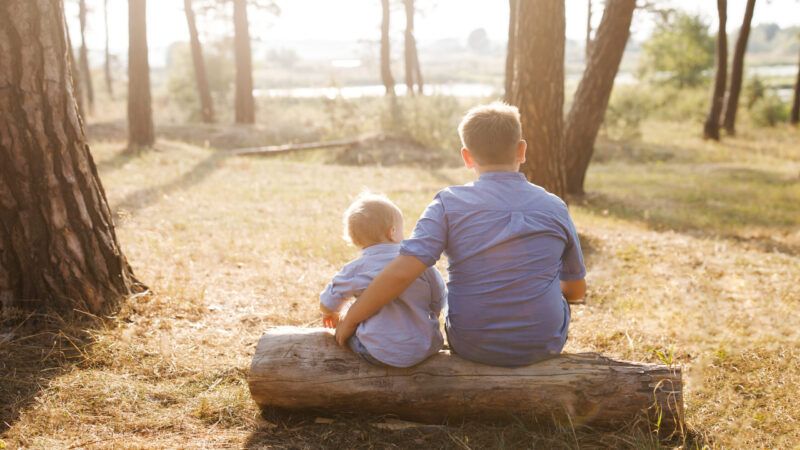Mom Placed on Child Abuse Registry for Letting 13-Year-Old Babysit
Pennsylvania’s “Reasonable Independence for Children” bill pushes back on overzealous child neglect laws.

When single mom of two and home health aide Alice (a pseudonym) needed to run a brief errand, she tasked her 13-year-old brother (whom she is also the caretaker for) with babysitting her nearly 1-year-old child. For this, she was placed on the state's child abuse registry.
Mariel Mussack, an attorney with Community Legal Services, told Alice's story during testimony before the Pennsylvania House Children and Youth Committee in favor of H.B. 1873—known as Reasonable Independence for Children—on October 6. Similar bills have been passed in 11 states to date, clarifying that neglect is when a parent puts their child in obvious, serious danger, not anytime they simply take their eyes off of them.
As in most of the other states, the Pennsylvania bill has bipartisan sponsors: Rep. Jeanne McNeill (D–Whitehall), who is majority chair of the committee, Rep. Rick Krajewski (D–Philadelphia), and Rep. David Zimmerman (R–Reinholds). Krajewski opened the hearing by noting that he'd grown up with a single mom who worked two or three jobs, and therefore, he had to get himself to school and help care for his younger sister. "It really does chill me to think that, in the eyes of our state statutes, that could be seen as neglect," Krajewski said.
Zimmerman recalled growing up on a farm. "We'd be gone all day," he said. "And we really would look out for each other."
Peter Gray, a research professor of developmental psychology at Boston College and a co-founder with me of Let Grow, a nonprofit fighting for childhood independence, testified that an independent childhood helps inoculate kids against despair.
"Over the last 60 years, we've seen a gradual but overall huge decline in children's opportunities to play, roam, and generally engage in activities independent of adults," Gray said, adding that "we've seen a gradual but overall huge increase in anxiety, depression, and…suicide among young people."
That's due to a shrinking "internal locus of control," the sense that you can handle things alone, said Gray. The way you build a robust internal locus of control is by being trusted to decide some things for yourself, like how to spend your time, and what you can handle on your own. "But," Gray said, "we're not allowing [kids] to do that."
As constant adult supervision becomes the norm, more and more kids are being reported to the authorities. Diane Redleaf, a civil rights lawyer and Let Grow's legal consultant, says that 37 percent of American children will be the subject of a hotline call—that number soars to 53 percent for African-American children.
Ethan Demme, a Lancaster, Pennsylvania, adoptive dad and CEO of educational publishing company Demme Learning, said he went to testify because "I know firsthand about parents abusing their children and the need to intervene when that happens." Unfortunately, he continued, "some people equate independence with neglect." If some passerby calls the authorities because his kids are outside, Demme said, "my children are thrust into another terrifying interaction with police or child services."
I also testified, reminding the committee of the Georgia mom handcuffed in front of her kids because her 10-year-old son walked to town unsupervised. I read aloud a letter from Lonna Gordon, a suburban Philly mom whose sons—aged 9, 6, and 4—had been wandering and playing in the neighborhood when someone called 911. When police arrived, the boys were within 50 feet of home.
Alice was eventually removed from the child abuse registry. But, Mussak said, "we have seen many cases similar to Alice's."
As Demme summed it up, we don't need to lower the bar for protecting kids in real danger. "We need to raise the bar for common sense."


Show Comments (29)